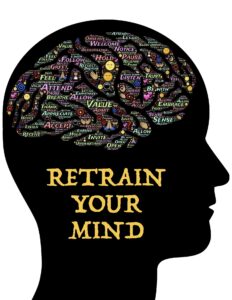
Establishing a routine based on your values is incredibly important for women with ADHD for two main reasons.
1. Your environment can often influence how your time and attention is allocated; having an established routine gives you clarity on where to prioritize your focus. By having a personalized schedule with built-in patterns, you can anchor yourself to what matters most.
2. This structure reduces choices and anxiety and gives you a sense of certainty. Many women with ADHD struggle with fear and uncertainty. A routine helps reduce stress by providing structure and predictability for yourself.
Unfortunately, routines are challenging for ADHDers to stick to, even though they are so helpful.
Let’s look at three reasons why and some solutions.
1. Let’s face it, routines can be pretty dull.
ADHD brains like excitement and novelty!
Some solutions for this dilemma:
- Pair your routines with something you enjoy: music, a snack, a podcast time with a friend. Use your creativity.
- Pair your routines with verbal praise, a treat, or something else you’ve generated as an external reward OR ask for praise or affection from someone you care about when you report to them that you did the thing.
- Change or flip routines around from time to time to make them more attractive.
2. You try to do too much with your routines, so they stress you out.
- Building a routine should be personalized to you. It should feel good a sustainable and eliminate stress.
- Make them more flexible and easier to stick to.
- Scale them down.
- Sometimes your perfectionism can get a hold of your attempts to schedule a routine, causing you to overschedule yourself or have an unrealistic idea of what you should do in a day.
- Build in cushion time between your activities
- Don’t compare your routine to other people, especially neurotypical ones.
Questions to ask
- Are you overscheduling yourself?
- Are you expecting too much?
3. You try a routine and fall out of it, assuming you’ve failed.
You will always fall off the wagon and need to get back on, and that’s okay. Neurotypical people do, too. The more tailored a routine is to your brain and your needs, the easier it will be for you to pick it back up. Be kind and gentle to yourself, and remember it should be a sustainable practice tailored to you and shouldn’t make you feel bad.
It’s always going to be one step forward, two steps back.


